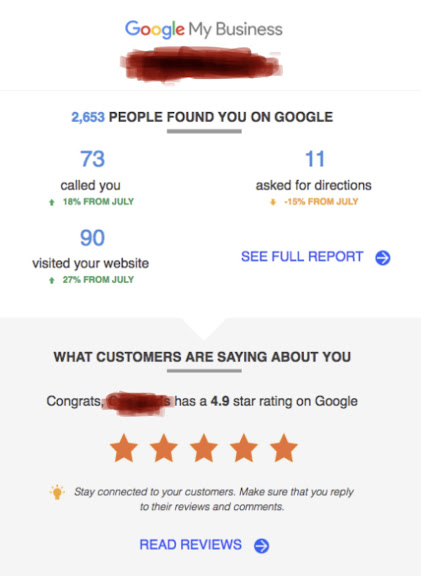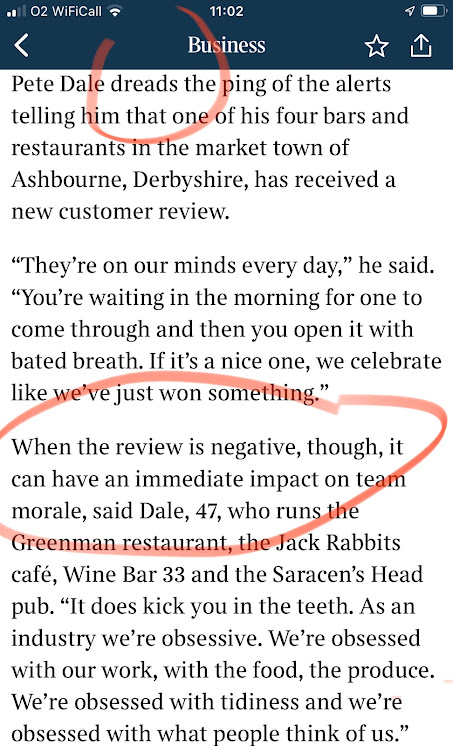To save you mining through this blog, here are the six questions we are asked the most, along with our answers...
1. Why not just invite customers to write Google reviews direct?
You can. If your Google score is not critical then by all means do. But don't be surprised when you receive the odd factually inaccurate or potentially misleading review (see 'moderation' at 4. below). It is easy to see one's own Google score in isolation, but potential customers will always compare your score with competitors. Look at these two searches (the first is a 'simple' search and the second has used Google's popular 'Top-rated' function)...
That 0.1 or 0.2 is only gained by using a moderated solution (or, dare we say it, playing fast and loose with point 5. below), and moderation is only possible if you invite reviews to your own website using an independent mechanism that incorporates moderation (such as HelpHound).
As a general rule-of-thumb...
- if you sell products: inviting reviews direct to Google will do the trick as a score of 3.5 - 4.0 won't put many customers off
- if you sell a service: (legal, financial or medical and the likes of recruitment and estate agency) a single inaccurate or misleading review can - and will - do untold damage, so you will need a moderated system
2. Why do we need a moderated solution?
The answer to 1. above is only part of the story. Imagine you receive a factually inaccurate or potentially misleading review - on Google (all businesses do, sooner or later, and it's not an experience to relish). What can you do? Well, you could appeal to Google, but their criteria for removal are extremely narrow - and don't include errors of fact or misleading statements.
And, on top of that, what will be the impact of such a review? It can be really harmful to flows of enquiries. If you have any doubts as to that we suggest you read what happened to Summerfield Browne.
Moderation gives reviewers an opportunity - pre-publication - to correct errors of fact and/or potentially misleading statements. It is welcomed by reviewer and business alike. It also happens to be a great way to weed out 'fake' and malicious reviews - or even simply calm down a genuine reviewer who is 'over-egging the pudding' as so often happens.
3. What's wrong with review sites?
They were the only option until Google placed reviews - their own reviews - front and centre of their offering. We have advised client businesses to focus on Google for over ten years now. If in any doubt find a business that boasts of its rating on a review site and then search for it and see what you see. The answer - 100% of the time - is Google reviews.
4. Why is moderation so important?
As if we haven't said enough already. It's key to protecting both your business and your future customers from factually inaccurate or potentially misleading reviews. It removes the 'fear' that so many businesses feel when embarking on their review management journey - and it's the answer to compliance (5. below).
Factually inaccurate reviews and potentially misleading reviews: these categories of reviews have the capacity to prevent consumers even enquiring about your services. Here's more on this important subject.
The snag? You will have to invite and display reviews on your own website. But is that really a snag, given that your potential customers relish seeing them there?
5. Why is compliance so important (all our competitors seem to be flouting the law)?
The CMA is on the warpath against businesses that flout its core rules...
- No cherry picking (selecting 'happy' customers to write reviews)
- No gating (pre-qualifying 'happy' customers using a survey or similar mechanism)
- No controlling the timing of the review
6. Can we be sure of making money from adopting review management?
For years our response had to be 'Why don't you try it and see?'. Not any more. Hard evidence is now available - monthly - from your Google my Business report.
And this anecdote - from a client of a client of ours - really says it all...






























